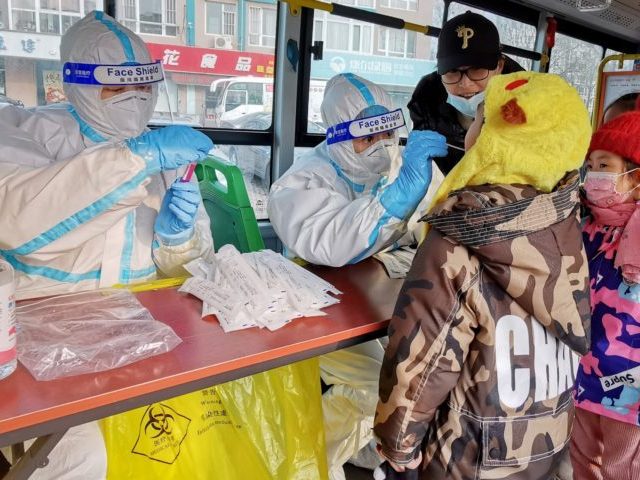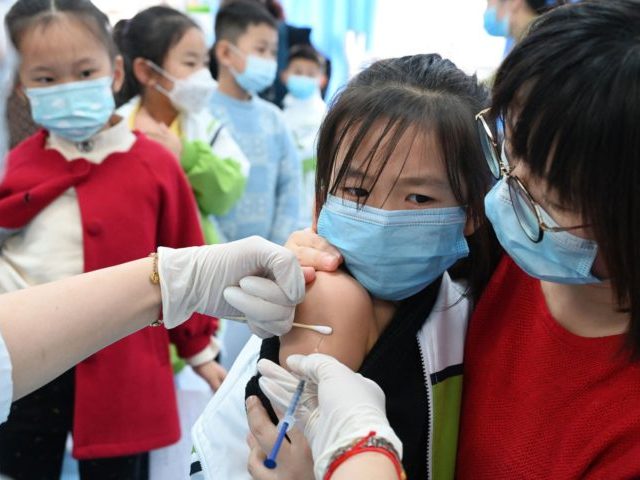China’s latest coronavirus epidemic has forced the country to transition from a “zero infection” strategy to a “zero case policy,” which encourages state officials to “prevent viral transmission in communities and to find out and treat patients as soon as possible,” China’s National Health Commission (NHC) said Sunday.
The head of NHC’s coronavirus response expert panel, Liang Wannian, told the state-run Global Times on November 14 China’s new “zero case policy” differs from a “zero infection” strategy because it is “dynamic.” China’s NHC considers the approach more flexible in the current “era of epidemic normalization,” according to Liang.
The NHC leader said this new era of coronavirus “normalization” includes four conditions: “no local transmitted infections related to imported cases, emergence of sporadic local cases, emergence of partial cluster infection cases in a single location and emergence of sporadic or cluster cases in multiple regions.”
China is currently battling its most widespread publicly known outbreak of coronavirus since the initial outbreak that started the pandemic in Wuhan, China. The epidemic has affected “21 provinces, regions, and municipalities” since it began on October 17 and caused at least 1,308 infections nationwide as of November 14, according to Reuters. China’s northeastern port city, Dalian, has struggled under the nation’s worst coronavirus caseload in recent days. Coronavirus infections in the coastal tourist hub “have grown faster than elsewhere in the country,” Reuters observed on November 15.

A health worker (C) in a protective suit takes a swab from a child to test for the coronavirus as the city carries out a mass testing program after new confirmed cases were found in Dalian, in northeastern China’s Liaoning province on December 23, 2020. (STR/AFP via Getty Images)
“Since Dalian’s first local symptomatic patients from the latest outbreak was reported on Nov. 4, the port city of 7.5 million people has detected an average of about 24 new local cases a day, more than any other Chinese cities, according to Reuters calculations,” the international news agency reported Monday.
“Dalian remains locked in a struggle with the virus,” NHC official Wu Liangyou told reporters in recent days as Dalian government officials shut down all non-essential travel out of the major port. Dalian municipal authorities ordered all of the city’s residents not to leave their homes except for essential outings — i.e., for food or medicine — for an indefinite amount of time on November 12.
China’s ruling Communist Party says it traced the nation’s latest coronavirus outbreak to a Shanghai-based tour group that traveled to China’s Inner Mongolia Autonomous Region in early-to-mid October. According to the party’s official narrative, some of the tour group’s members contracted coronavirus while visiting Ejin Banner, an Inner Mongolian frontier town that serves as a major port between China and Mongolia.
“Health experts noted that exchanges of people and goods at the China-Mongolia port in Ejin Banner are highly likely to be the source of this round of infections, as almost all domestically transmitted cases were from tour groups,” the Global Times, a newspaper run by the Chinese Communist Party, relayed on October 25.

COMMENTS
Please let us know if you're having issues with commenting.